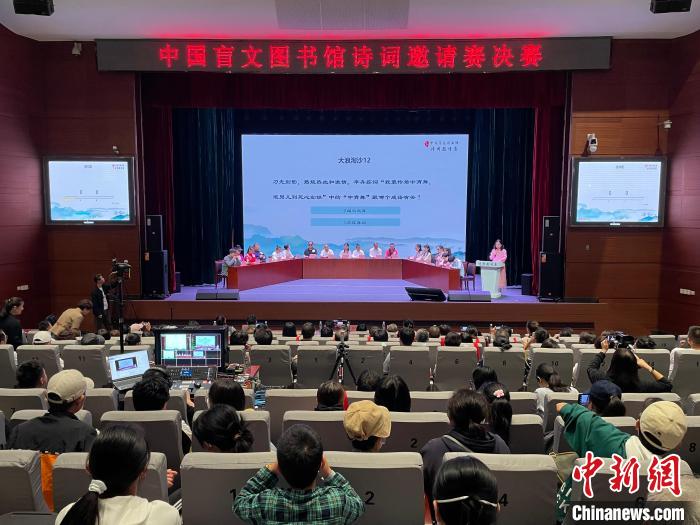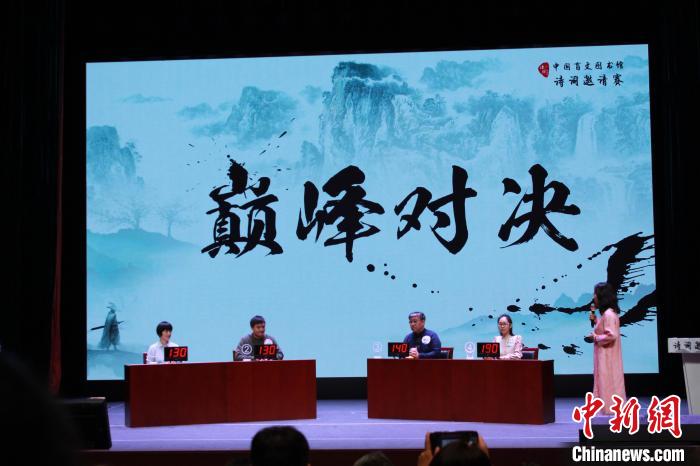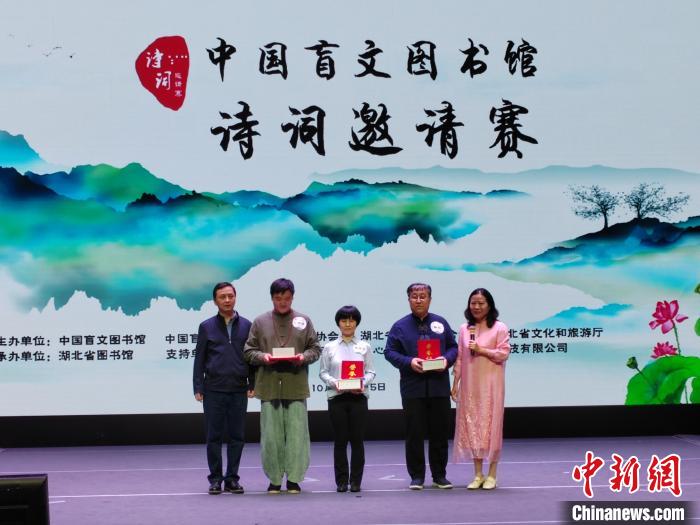Zhongxin. com, Wuhan, October 15 (Ma Furong, Zhu Jiayi) The final of the first poetry invitational tournament of Chinese Braille Library was held in Hubei Library on the 15th, and 18 visually impaired players competed for the championship through required answers, competing answers and flying orders.

The contest is jointly sponsored by China Braille Library, China Braille Publishing House, China Association for the Blind, Hubei Disabled Persons’ Federation and Hubei Provincial Cultural Tourism Department, and is divided into three stages: preliminary contest, semi-final contest and final contest. The preliminaries were held in 20 divisions in Hubei, Shanghai, Inner Mongolia and other countries. After layers of competition, 18 players finally reached the finals.
The final of the day included big waves, flying flowers, and peak confrontation. Among them, there are 30 multiple-choice questions in the big waves and sand washing session. After the host reports the questions, the players will answer them with the answering machine and get extra points for correct answers. In the confrontation session of the Flying Flower Order, the contestants competed around the theme words such as "Moon", and the wonderful competition won applause from the audience from time to time.

In the end, Zhang Wanyi, a player from Guangdong, won the national championship. The competition also decided 3 first prizes, 4 second prizes and 10 third prizes. "Reciting ancient poems is like singing, and it is very enjoyable." Zhang Wanyi said in an interview after the game that she likes ancient poems very much, and she will memorize many of them when she goes to school.
Feng Wenhui, a 13-year-old girl from Nanjing School for the Blind, who won the third prize, loved to read ancient poems since she was a child, especially Su Shi, a writer in the Northern Song Dynasty. "Su Shi always responded positively to setbacks, and his optimism and openness inspired me to keep moving forward." Feng Wenhui said.

He Chuan, deputy director of the Braille Library of China, expressed the hope that the contest would enrich the cultural activities of visually impaired groups, stimulate their interest in ancient poetry, and at the same time arouse the concern of the society for visually impaired groups to enjoy convenient public services. (End)
关于作者